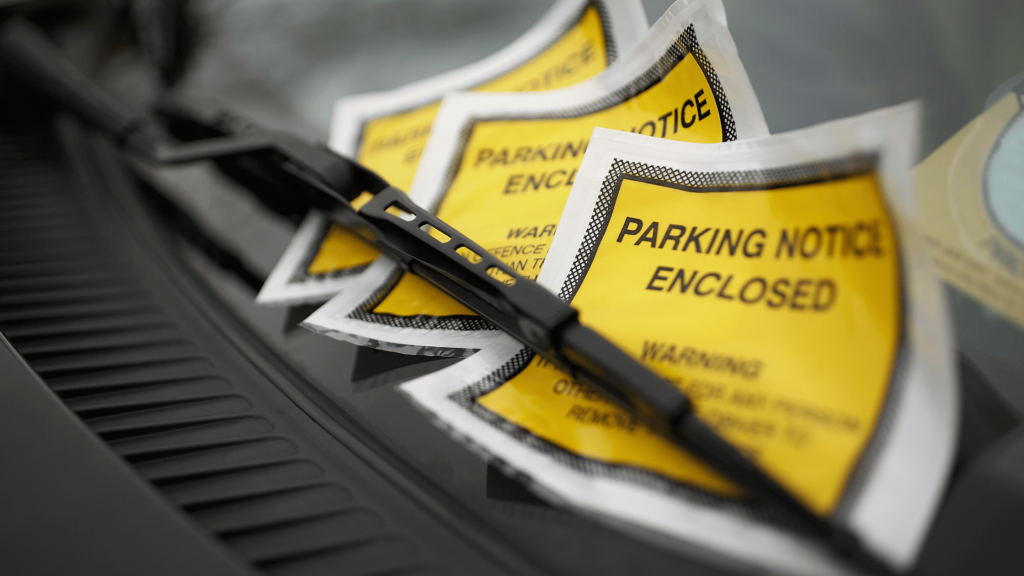That dreaded yellow slip on your windscreen – a Parking Charge Notice (PCN). Your immediate reaction might be frustration, annoyance, and perhaps the temptation to ignore it and hope it goes away. But in Northern Ireland, is that a wise course of action? McPartland & Sons Solicitors, serving drivers across the province, are here to shed light on why burying your head in the sand is rarely the best approach.
First, it’s crucial to distinguish between a Parking Charge Notice issued by a private parking company and a Penalty Charge Notice issued by a local council or the police. This blog focuses on Parking Charge Notices from private operators on private land such as retail car parks, hospital grounds, or leisure facilities.
While a PCN from a private company isn’t a criminal penalty like a council-issued PCN, it’s not something to be dismissed lightly. These companies operate under contract with the landowner and have the right to manage parking on their property. By parking on their land, you are generally considered to have entered into a contract with them, agreeing to abide by their terms and conditions, which are usually displayed on signage within the car park.
Ignoring a Parking Charge Notice can lead to a significant escalation of the issue. Here’s a breakdown of the potential consequences:
1. Mounting Costs: The initial charge will increase if you don’t pay within the specified timeframe (often 14 or 21 days). The parking company will send reminder letters, adding administration fees at each stage. What started as a relatively small sum can quickly balloon into a much larger debt.
2. Debt Recovery Action: If you ignore the notices, the parking company may pass your debt onto a debt recovery agency. These agencies can be persistent and may send intimidating letters and make phone calls demanding payment. While they don’t have the same legal powers as bailiffs acting on a court order at this stage, their actions can be stressful.
3. County Court Claims: The most serious consequence of ignoring a Parking Charge Notice is the possibility of the parking company taking you to the County Court to recover the outstanding debt. If they are successful, the court will issue a County Court Judgment (CCJ) against you.
4. Impact of a CCJ: A CCJ can have severe implications for your financial future. It will be recorded on your credit file for six years, making it harder to obtain credit cards, loans, mortgages, and even some mobile phone contracts. It can also affect your ability to rent property. Furthermore, if you still fail to pay after a CCJ, the parking company could apply for further enforcement action, such as an attachment of earnings or even bailiffs to seize goods.
What should you do if you receive a Parking Charge Notice?
Instead of ignoring it, take the following steps:
- Carefully Examine the Notice: Check for accuracy. Does it clearly state the date, time, and location of the alleged contravention? Is your vehicle registration correct? Is the reason for the charge clearly stated?
- Review the Signage: Go back to the location, if possible, and carefully review the parking signs. Were the terms and conditions clear and prominently displayed? Did you genuinely breach those terms?
- Gather Evidence: If you believe the PCN was issued unfairly (e.g., faulty ticket machine, unclear signage, you were only briefly overstaying due to unforeseen circumstances), gather any evidence to support your case, such as photographs, receipts, or witness statements.
- Consider Appealing: Most reputable parking companies operate an appeals process. Follow the instructions on the PCN to submit your appeal, providing all relevant evidence. Be clear, concise, and polite in your appeal.
- Seek Legal Advice: If your appeal is unsuccessful or you are unsure about your rights and obligations, it’s always wise to seek legal advice from a solicitor specialising in motoring or debt matters, such as McPartland & Sons. We can assess your situation and advise you on the best action to take.
In conclusion, while the urge to ignore a Parking Charge Notice might be strong, it’s a risky strategy in Northern Ireland. The potential for escalating costs, debt recovery action, and ultimately a County Court Judgment far outweighs the temporary relief of inaction. By understanding your rights, reviewing the notice carefully, and following the appropriate steps to appeal or seek advice, you can address the issue effectively and protect your financial well-being.
Related Blogs:
When is it legal to drive without an MOT certificate
Speed and passenger rules for L and R drivers in Northern Ireland

